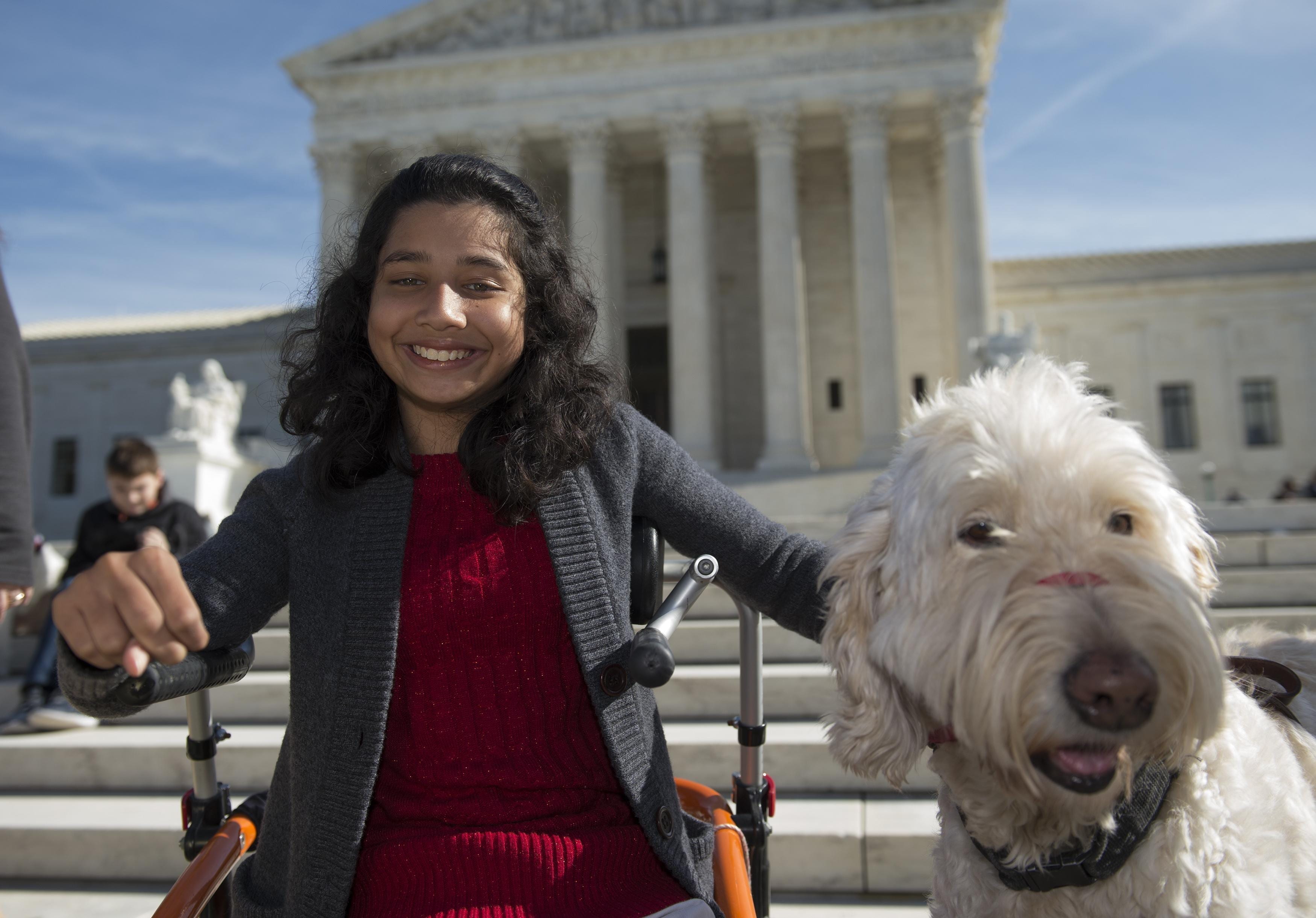Supreme Court Justice Elena Kagan rules taht Ehlena Frys’ service dog Wonder can go to school with her.
These days, pooches are allowed to accompany their owners just about anywhere. There are dog friendly malls, lap dogs with airplane passengers, and small dogs often peek out from hand bags. Dogs are welcomed into public for the enjoyment of their owners. So, when service dogs are needed to assist with physical needs, it should go without saying that the canines should be allowed to accompany their owners. However, Ezra Eby Elementary School in the Napoleon School District of Jackson, Michigan, banned a 13 year old girl, Ehlena Fry, with cerebral palsy from bringing her service dog to school with her. School officials figured that the girl was being sufficiently helped by staff members, and didn’t need additional assistance from the golden doodle, Wonder. Wonder has been trained to help Fry pick up dropped items, go through doorways, operate light switches and take off her jacket. The girl’s pediatrician had told her family the canine should stay with his owner at all times so maintain their friendly connection. A strong bond would be maintained if the two were near each other as much as possible.

Fry’s family disagreed with the district’s decision and decided to take matters into their own hands. They pursued legal action, citing the school had violated the Americans with Disabilities Act and the Rehabilitation Act, rather than Individuals with Disabilities Education Act. Under these acts, the family argued, Fry was entitled to special needs assistance in order to ensure her educational success. By disabling her from having her service dog, the school was denying her basic civil rights.
Supreme Court Justice Elena Kagan agreed. She found that based on the allegations asserted, the family was not required to exhaust administrative remedies under the IDEA law before determining whether or not to sue. By choosing to cite violation of the other two acts, they were within their legal rights to take action. “The court should decide whether [the family’s] actions reveal that the gravamen of their complaint is indeed the dentail of a [free appropriate education], thus necessitating further exhaustion,” she stated.

When the case hit the lower courts, decision makers had ruled that the family would need to exhaust remedies available under the IDEA law first. So the Supreme Court Justice’s decision was a relief to the Frys and what they had been waiting to hear. Judge Kagan focused more on Ehlena’s basic rights to an education equal to her peers. She decided that the ultimate goal of providing the girl with more physical and emotional independence while pursuing her education was simply more important in the long run. “Nothing in the nature of the Fry’s suit suggests any implicit focus on the adequacy of [Ehlena’s] education,” Kagan wrote in her judgement. “The Frys could have filed essentially the same complaint if a public library or theater had refused admittance to Wonder.”
Even with the unanimous decision of the Supreme Court, a lower federal court could attempt to ensure the Fry exhaust all avenues under IDEA. For now, Wonder will be beside Fry in the school’s halls.
Sources:
Supreme Court rules for girl who wanted to bring her service dog to school
Girl, 13, wins Supreme Court case regarding service dog


Join the conversation!